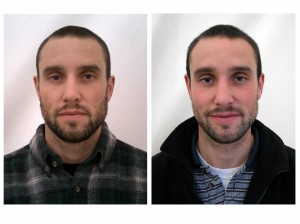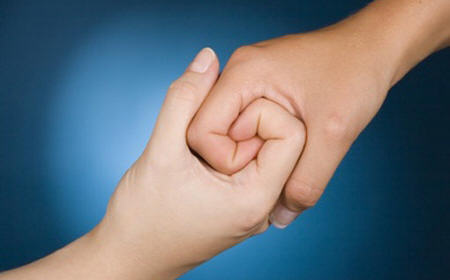In
most of our human relationships, we spend much of our time reassuring one
another that our costumes of identity are on straight.
Ram
Das
In
the "Search for Self" class I recently completed at the
Interdependence Project, we did a contemplation in which we were
asked to think of a label we identify with. None of the possibilities that
emerged for me were "wife."
And
yet, I've been a wife for more than half of my life. It doesn't
come up for me because I don't see myself filling the socially constructed role
of "wife" very well.
When I say "wife"
it's cause I can't find another word
for the way we are
but "wife" sounds like you're mortgaged
sounds like the family car
Jonathan Richman
When I Say Wife
For
a long time, I thought I was a bad wife because I didn't fulfill those
expectations. What I've learned, though, is that "wife" is a label,
not a definition. It is a role; it is not me, even if I am it.
A
man once came into my meditation class, and asked -- during the wide open Q
& A -- how I could reconcile being married (I wear a ring) with the
Buddhist doctrine of impermanence. He'd earlier made a comment about wishing he
could go on retreat, explaining that his girlfriend didn't understand why he would
want time away.
Everything
is impermanent, I said, in the sense that it is constantly changing. Nothing
stays exactly as it is in any given moment -- not mountains or coastlines or
skin or relationships. What that means is that your relationship is never solid
or static; you can't freeze your partner into the person they were when you
stood at the altar.
Living
from a realization that everything and everyone changes, you can dance with the
energies. Some days it may be an angry dance, an almost-choreographed sword
fight. Other days it's a ballet, and every move is precise and interwoven. You
might get a solo. Or one person's timing might be off, throwing things into
chaos for a bit. But it can be a thing of beauty and joy.
At
some point it will end. Life is impermanent. Death comes for us all.
Once,
at the end of a retreat when participants were talking for the one of the first times and
getting to know people they'd been sitting with, I was standing with two women who were talking with
great love and affection about their partners, who also were women. One turned
to me and said, "How about you? Do you have a partner?" I stammered,
"Uh, no, I'm straight." She smiled. "You still can have a
partner."
I
do have a partner, a longtime one, so long that our cells have turned nearly
five times since we first became an item. I am fortunate and grateful that he's
not threatened by my going on retreat, that he dances with me, even if we sometimes step on one another's feet.
Buddhist psychologist John Welwood describes it as "the play of oneness and twoness" -- oneness being the ultimate level of absolute love, where no one is separate from others, and twoness the relative level where distinct personalities meet.
Buddhist psychologist John Welwood describes it as "the play of oneness and twoness" -- oneness being the ultimate level of absolute love, where no one is separate from others, and twoness the relative level where distinct personalities meet.
Happy anniversary, Spouse.










